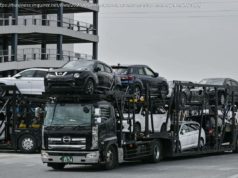 Since Daniel Hannan, a formerly obscure MEP, has emerged as the anointed intellectual of the Brexit elite, The Staggers is charting his ascendancy…
Since Daniel Hannan, a formerly obscure MEP, has emerged as the anointed intellectual of the Brexit elite, The Staggers is charting his ascendancy…
People out there in the big wide world are often helpful enough to point me towards Daniel Hannan’s latest brainfarts. He’s pretty prolific, but some of his work seems so boneheaded that I’ll get the same link sent to me by two, three, or, on one occasion, five different people.
This week it was this particular tweet – a retweet from last September; it’s all repeats on the internet these days – that everyone seemed keen to point me towards.
It’s like Ayn Rand has been reincarnated in the form of 15 year old hoping to study PPE at Oxford, isn’t it? That tweet suggests a world view so comfortingly simple that nobody actually needs money, and if you try to tax anyone anything they might decide to stop earning any in a fit of pique. (At time of writing, incidentally, Daniel Hannan has yet to resign his job as a Member of the European Parliament.)
If I get too far into this one, though, there’s a danger I’ll find myself attempting to disprove the assumptions of classical economics through the medium of sarcasm, and while I’m not shy about my own abilities to bullshit, I think that may be a bit beyond me. So instead I’m just going to leave it there for everyone to marvel at while we talk about flags.
Daniel Hannan’s header has been annoying me for months now, because it clearly takes place in a parallel universe in which the Anglosphere is a real thing rather than just the masturbatory fantasies of a certain type of free market ideologue. It combines the flags of the UK, US, Australia, Canada and New Zealand, into a single red, white and blue monstrosity: the fact that one of Britain’s best known Eurosceptics uses this as his banner pic implies, at least to me, that he thinks this is what we should have instead of the EU.
At first glance, the assumption here seems to be that Britain’s natural allies are all the other countries who speak English. Except it clearly isn’t that, because a lot of other countries also speak English – Ireland, India, South Africa, to name but three – yet are mysteriously missing from the flag.
A better definition might be that it’s the bits of the British Empire where our forefathers planted their own colonies and attempted to wipe out the natives, rather than simply lording it over them through a combination of divide-and-rule and Maxim guns. More charitably, it’s the places that have a slightly misty-eyed relationship to the same stuff – free markets, Magna Carta, the notion that Britain invented freedom – that Dan himself does.
The notion of the Anglosphere is not entirely without foundation: these five countries constitute the Five Eyes intelligence alliance, which implies a certain degree of closeness, and there’s a fair amount of military co-operation too. In the event of a nuclear holocaust, indeed, one of the instructions British prime ministers can leave for their nuclear subs is, basically, “You are now Australian. »
But nonetheless oh my god, mate, are you actually high? The Anglosphere is not a political unit – outside the world of George Smiley and GI JOE, it might as well not exist – and the idea of a US that is increasingly a) diverse but b) protectionist going anywhere near that kind of thing is just delusional. Dan is basically just saying he’d be happier if Britain’s primary allies were countries which we founded, which speak English, and which contain depressingly high concentrations of people who agree with him.
I was going to end with a crack about how the Anglosphere flag was such a work of science fiction that Dan might as well employ the flag of Star Trek ’s United Federation of Planets or, if that was too lefty, the Terran Federation from Blake’s 7 (at least everyone there speaks English). But I’ve had a better idea. There is another rainy, sea-faring kingdom in a popular work of fantasy that recently took advantage of continent-wide chaos to break away from a larger political unit. In what may or may not a foretaste of things to come, it later used it as an excuse to attack its former allies.
I am talking, of course, about the Iron Islands from Game of Thrones .
What is dead may never die.
Brexiteers and Remoaners alike have spent the winter months talking of leaving the « customs union », and how this should be weighed up against the benefits of controlling immigration. But what does it actually mean, and how is it different from the EU single market?
Imagine a medieval town, with a busy marketplace where traders are buying and selling wares. Now imagine that the town is also protected by a city wall, with guards ready to slap charges on any outside traders who want to come in. That’s how the customs union works.
In essence, a customs union is an agreement between countries not to impose tariffs on imports from within the club, and at the same time impose common tariffs on goods coming in from outsiders. In other words, the countries decide to trade collectively with each other, and bargain collectively with everyone else.
The EU isn’t the only customs union, or even the first in Europe. In the 19th century, German-speaking states organised the Zollverein, or German Customs Union, which in turn paved the way for the unification of Germany. Other customs unions today include the Eurasian Economic Union of central Asian states and Russia. The EU also has a customs union with Turkey.
What is special about the EU customs union is the level of co-operation, with member states sharing commercial policies, and the size. So how would leaving it affect the UK post-Brexit?
The EU customs union in practice
The EU, acting on behalf of the UK and other member states, has negotiated trade deals with countries around the world which take years to complete. The EU is still mired in talks to try to pull off the controversial Transatlantic Trade and Investment Partnership (TTIP) with the US, and a similar EU-Japan trade deal. These two deals alone would cover a third of all EU trade.
The point of these deals is to make it easier for the EU’s exporters to sell abroad, keep imports relatively cheap and at the same time protect the member states’ own businesses and consumers as much as possible.
The rules of the customs union require member states to let the EU negotiate on their behalf, rather than trying to cut their own deals. In theory, if the UK walks away from the customs union, we walk away from all these trade deals, but we also get a chance to strike our own.
What are the UK’s options?
The UK could perhaps come to an agreement with the EU where it continues to remain inside the customs union.






